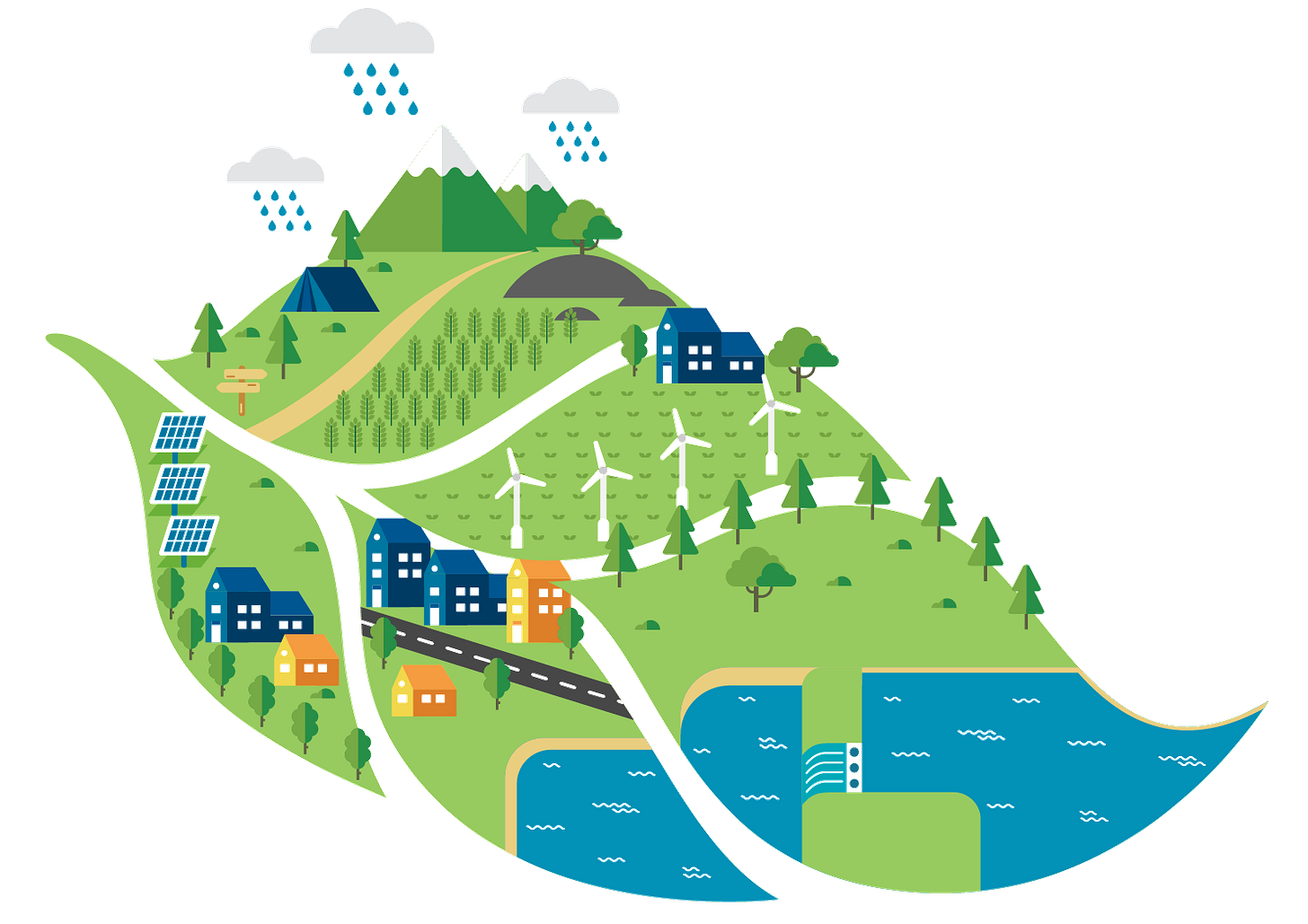Keeping green warm in a cold climate
As populism continues to make advances, to what extent do the EU's green politics face a setback?
In the latest EU elections, a significant political shift seems to have occurred: the rise of populism and the so-called ‘far-right’ has been mirrored by a notable decline in support for green parties. In our view, this political realignment, with green party seats falling to 53 from a peak of 74 in 2019, signals potential challenges for environmental policies in Europe over the next five years. The implications of this shift extend beyond the continent and could impact global environmental ambitions.
Image: EU
The European Union's flagship environmental policy, the Green Deal, aims to make the EU climate-neutral by 2050. It’s always been ambitious: slash greenhouse gas emissions, build renewable energy like topsy, and somehow manage all this within the mantra of sustainable economic growth. However, the recent electoral gains by populists and far-right parties suggest a shift in political priorities that could undermine these goals.
No matter what we may think of the various green parties’ more swivel-eyed ideas, their decline in influence comes at a critical time. Net-zero and climate policies have started to significantly impact emissions and, importantly, people’s incomes. These policies have been shaped by various factors, including the post-pandemic economic recovery, high inflation rates, and the energy shock driven in part by the war in Ukraine. These complex and interlinked issues have created a challenging environment for implementing green policies.
One of the significant challenges facing the net-zero agenda is the economic impact of green policies. The push for rapid transitions to renewable energy sources and the phasing out of fossil fuels have had mixed economic effects. On the one hand, these policies have led to reductions in emissions and spurred investment in green technologies. On the other hand, they have also resulted in increased costs for consumers and businesses, which can be politically unpopular.
For instance, Germany's aggressive move to replace new gas and oil heating systems with heat pumps has faced substantial backlash. While this policy is intended to reduce emissions, it has been criticised for being costly and disruptive, contributing to public resistance against green initiatives. Such missteps highlight the delicate balance policymakers must strike between environmental goals and economic realities.
Additionally, the reaction of farmers to increased environmental regulations has further complicated the political landscape. Agricultural policies aimed at reducing emissions and promoting sustainability have often clashed with the interests of farmers, leading to protests and political pushback. This tension underscores the need for policies that consider the economic and social impacts on all stakeholders.
The setback for green parties is likely to have a direct impact on the Green Deal. Key components of the Green Deal, such as the phasing out of diesel and petrol cars, are now under review. The populist and far-right surge could lead to a weakening of these initiatives, delaying progress towards the 2050 climate neutrality target.
One critical area of concern is the EU’s interim target to reduce emissions by 90% by 2040, based on 1990 levels. If this target is shifted, it could push out all subsequent goals, undermining the overall net-zero timeline. The political pressure to modify these targets is likely to increase as governments grapple with the economic and social challenges posed by green policies.
In response to the changing political landscape, we might also see a shift in the policy tools used to achieve environmental goals. Governments and the EU might place greater emphasis on financial incentives to encourage the adoption of green technologies. For example, increasing tax incentives for installing heat pumps and solar panels or shifting to electric vehicles (EVs) could become more prominent in policy discussions.
Moreover, we might also see a stronger focus on highlighting the economic benefits of the net-zero transition. Emphasising job creation, technological advancements, and new business opportunities could help build broader support for green policies. This approach aligns with the broader trend of linking environmental goals with economic growth and social equity, often referred to as the green economy agenda.
An inclusive green economy is one that improves human well-being and builds social equity while reducing environmental risks and scarcities.
Source: UNEP
The political dynamics within the EU also have significant international implications. Anti-China sentiment and the threat of tariffs on Chinese green technologies, such as EV batteries and solar panels, pose additional challenges. The EU and the UK rely heavily on these technologies to meet their green targets. Imposing high tariffs could disrupt the supply chain, making the net-zero transition more difficult and costly.
Conversely, such tariffs might encourage Chinese companies to invest directly in the EU, potentially leading to new factories and job creation within Europe. Exhibit 1: look at what BYD is doing. Developments like these could carry mixed blessings, ‘letting the Chinese in’ while mitigating some of the supply chain risks and boosting local economies.
Energy security is another critical factor that must be considered in the context of green policies. The push for economic growth right here in the UK, including measures like relaxing planning regulations, highlights the ongoing tension between environmental goals and economic imperatives. Ensuring a stable and secure energy supply while transitioning to renewable sources will remain a key challenge for whomever is in charge after 4th July.
In this increasingly complex and uncertain world, The Green Edge believes it is essential to maintain momentum towards some form of universally accepted sustainability agenda, whether that’s couched in terms of net zero or whatever. The costs of inaction are too high, both in terms of environmental damage and economic consequences. Most people agree that climate change poses a significant threat to global stability, and delaying action will only exacerbate these risks.
To navigate this challenging landscape, policymakers at all levels must adopt a balanced approach that integrates environmental goals with economic and social considerations. This means developing policies that are not only effective in reducing emissions but are also economically viable and socially equitable. This, after all, is what true sustainability is all about. In pursuit of this, we’d like to think the next UK government makes a better fist of engaging with the ‘doers’ of the green economy – businesses, communities, environmental groups and others – than the current one has.
In the meantime, though, the recent EU elections have highlighted the shifting political landscape and the challenges facing green policies. The rise of populism and conservatism-with-a-small-‘c’ (labelled, in our opinion erroneously and perhaps even sillily by the liberal masses as ‘the far-right’) , coupled with the decline in green party support, suggests a potential slowdown in environmental ambitions. However, this setback also presents an opportunity to reassess and refine policy approaches.
By focusing on the economic benefits of the net zero transition, addressing the concerns of affected stakeholders, and ensuring energy security, we remain hopeful that European countries both in and out of the EU can continue to make progress towards its climate goals. We firmly believe that. The path forward may be complex, but with sustained commitment and innovative policy solutions, it is possible to achieve a sustainable and prosperous future for all.
Whether the rest of the world can do the same, of course, remains to be seen.








